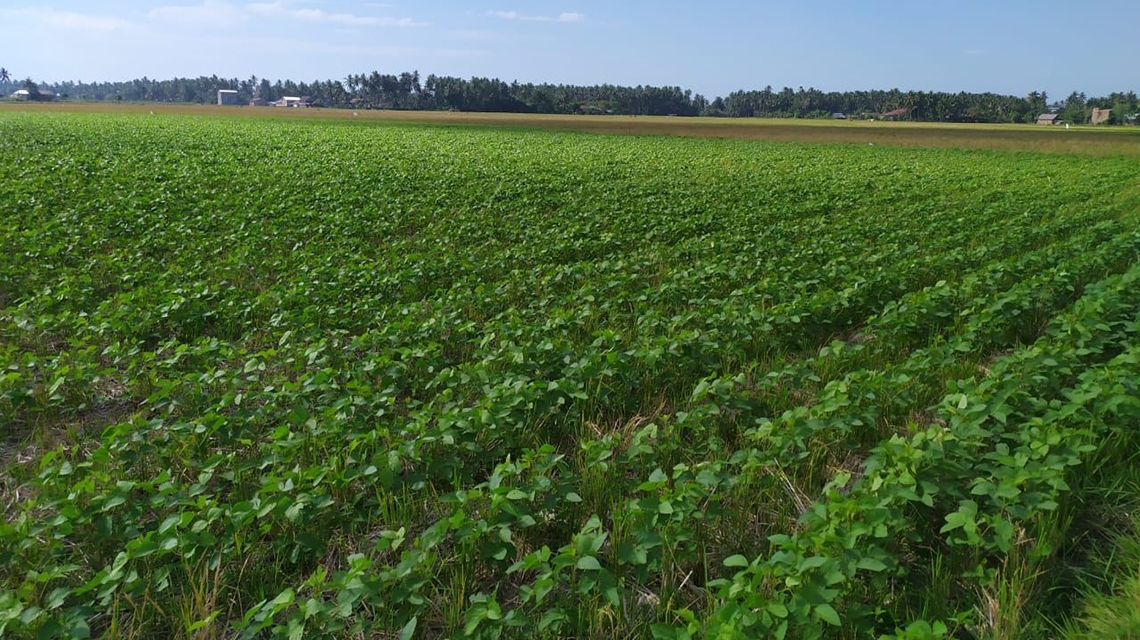Soybean products such as tofu and tempeh are staples in Indonesian cuisine and important protein sources for much of the population. Over 2 million tons of soybeans are consumed in Indonesia every year, but only around 800 000 tons are produced domestically. With national soybean production unable to meet even half of the demand, Indonesia depends on soybean imports – a situation that the government is looking to change by using new soybean varieties developed with irradiation.
In the 1990s, national soybean production began to decline due to low yields and productivity, negatively impacting farmers' income. This made farmers opt for other, higher-value crops such as rice and corn. For soybeans to be more attractive to farmers, new varieties with higher productivity were needed.
“Efforts towards self-sufficiency in soybean production are not only to meet the food needs of the country, but also to support the national agriculture industry,” said Winda Puspitasari, a researcher in the Isotope and Radiation Application Center at the National Nuclear Energy Agency of Indonesia (BATAN).
In 2018, the government launched a programme to reinvigorate the national soybean industry. The four-pronged plan focuses on optimizing land use, production systems, pest control and cultivation methods. The goal is to gradually taper off soybean imports and make Indonesia fully self-sufficient.
As part of the programme, the government is using new soybean varieties developed by BATAN, working with the IAEA in partnership with the Food and Agriculture Organization of the United Nations (FAO). Over the last thirty years, BATAN has developed 12 varieties of soybean through plant mutation breeding (see What is plant mutation breeding?), with desirable characteristics such as high yield, increased tolerance to soil acidity, larger seed size, high protein content and early maturity.
“Developing high quality soybean varieties with high yields can help make soybean production a more lucrative option, which can stimulate economic growth for farmers, producers and entrepreneurs,” said Azri Kusuma Dewi, a plant breeder at BATAN.






